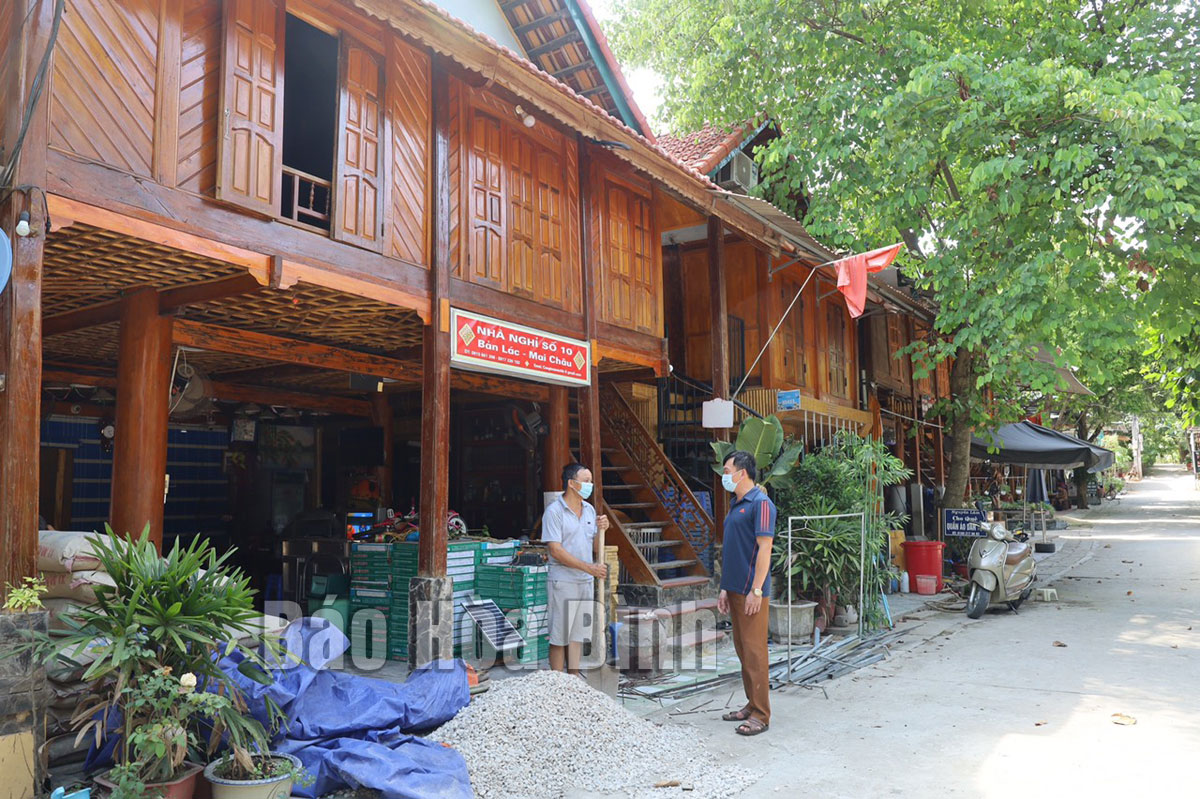
(HBO) – Tourism activities and craft villages in Mai Chau district are experiencing a period of stagnation as a result of the COVID-19 pandemic’s impact. A number of households earning their living from tourism and traditional crafts are struggling due to unstable livelihoods and income.

During the period of activity suspension, households
working in community-based tourism in Lac village of Chieng Chau commune (Mai
Chau district) have been upgrading infrastructure to prepare for tourism
resumption.
Travellers absent in community-based
tourism village
Lac village in Chieng Chau commune is a famous
community-based tourism village. In the peak season, it welcomed around 1,500
visitors, both Vietnamese and foreign ones, per day. But that was the time
before the COVID-19 pandemic started, according to village leader Ha Cong Hong.
Ha Cong Tan, owner of a community-based tourism
hostel in Lac village, has suspended receiving tourists since early May.
He said the households running hostels like his
have had to halt activities to carry out anti-pandemic measures. Many have
temporarily closed their establishments.
To prepare for tourism reopening once COVID-19
is brought under control, some households have been upgrading accommodation
facilities, he noted, adding that his family is also expanding infrastructure
to welcome travellers back when possible.
Traditional craft villages face numerous
difficulties
Previously earning incomes of 3 million - 4
million VND (131 - 175 USD) per month, workers of the Chieng Chau brocade
making, service, and tourism co-operative is now unemployed. To support
families, some of them have had to seek jobs at tailor shops or companies in
the Chieng Chau industrial cluster, but the new jobs are not stable.
Ha Thi Lieu, deputy head of the culture and
information division of Mai Chau, said all tourism business and accommodation
establishments across the district have suspended operations to prevent the
spread of COVID-19, affecting about 1,200 workers of hostels, community-based
tourism facilities, and craft villages.
She noted aside from requesting the serious
implementation of anti-pandemic measures, local authorities have also
encouraged households to improve services and upgrade infrastructure. The Mai
Chau People’s Committee has ordered specialised agencies to list people
eligible to benefit from the Government’s aid package of 26 trillion VND for
pandemic-hit enterprises and people, including those working in the tourism
sector.
Spanning thousands of hectares and winding gracefully along mountain slopes, hillsides, and riverbanks, the terraced rice fields of Lac Son District present a stunning and captivating beauty. This region, renowned for its remarkable terraced landscapes, is also the centre of Hoa Binh Culture known for numerous archaeological sites.
The life of Mong people in Hang Kia and Pa Co communes of Mai Chau district has improved much thanks to tourism development.
The man-made Hoa Binh Lake, with a water surface area of approximately 9,000 hectares and a capacity of 9.45 billion cubic meters, stretches over 200 kilometers from Hoa Binh to Son La provinces. With the goal of developing into a national tourism area, the Hoa Binh Lake tourism area is expected to not only become the largest tourism centre in the province but also one of the 12 key tourist destinations in the northern midland and mountainous region of Vietnam.
Da Bia hamlet, now Duc Phong, in Tien Phong commune, Da Bac district, was once almost isolated from the outside as the only way to the hamlet was to get a boat ride across the Hoa Binh reservoir. However, as its tourism potential has been unleashed, the hamlet has established itself as one of the most attractive destinations on the tourism map. It has even received the ASEAN Community-Based Tourism Awards in 2019.
In the first 9 months of 2024, Mai Chau district, Hoa Binh province welcomed over 684 thousand visitors to visit and relax. In which, over 516 thousand domestic visitors and more than 168 thousand international visitors. Total revenue from tourism is estimated at over 821 billion VND.
Da Bac district, bestowed with stunning landscapes, is developing ecological and resort tourism offerings. Several tourist sites, put into operation this year, has attracted throngs of high-spending and young domestic visitors.



